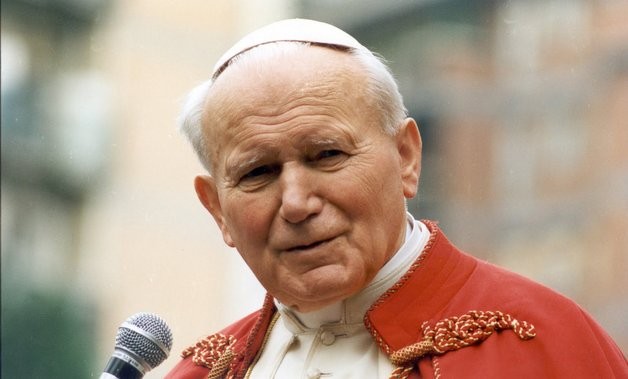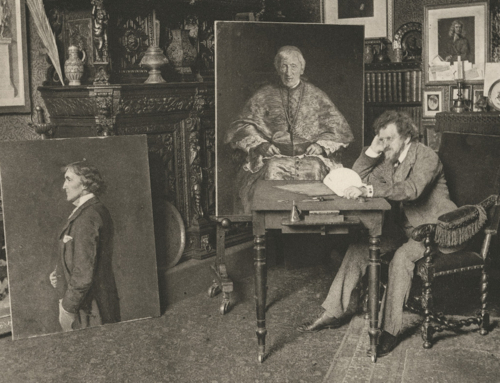Bl. John Paul II was nothing if not enthusiastic. As one of my confrères recently observed to me, John Paul characteristically spoke in the imperative mood: Be not afraid! Be holy, as He is holy! Be fruitful, and multiply!
Despite this nearly constant tone of insistence (with its attendant italic script), John Paul was well aware that if we had to rely only on human strength, these undertakings would be truly impossible—and yet, “although the journey is difficult, we can do everything in the One who is our Redeemer.” Far from debilitating us, a recognition of our own littleness and of the inadequacy of our human efforts frees us from the poverty of our imagination, allowing us to aspire to be truly great and to do great things—in a word, to be saints.
The prayer of the Church can be of great assistance in helping us to overcome our poverty of imagination, for the liturgy constantly invites us to pray for intentions that are far greater than what might occur to us to ask for on our own. Today’s collect for the Thursday of the Octave of Easter is no exception:
O God, who have united the many nations in confessing your name, grant that those reborn in the font of Baptism may be one in the faith of their hearts and the homage of their deeds.
In this prayer, we ask God to bestow unity upon those who have been baptized. We might think first of those who have just recently been baptized on the Easter Vigil five days ago, but also of all who have at any point in their lives been united into the One Faith by the one Baptism, whether or not they are at present visibly united to Christ and his Church. In light of all of the divisions which exist within the Church and amongst Christians, this prayer might seem presumptuous—by asking for such an apparently impossible result, are we not setting ourselves up for an inevitable disappointment?
A key for resolving this dilemma comes in the opening line of the prayer: before asking God for this specific intention, we praise him for what he has already done for us, for uniting the diversity of nations in confessing his name. Jesus charged his disciples to preach repentance in his name to all the nations, and by the power of his Spirit this preaching has already begun to have its effect. When we pray that those who confess the name of God may be more and more united, we ask the same Lord who has united the nations in all of their diversity to perfect this unity amongst all of us. Division comes from human weakness; unity comes from the Spirit of Christ.
Bl. John Paul II was relentless in reminding the Church of the importance of proclaiming the repentance brought about by Jesus and of praying and working for the unity of Christians. Although distinct, these two tasks have a deep inner relation that flows from Christ’s prayer at the Last Supper “that they may all be one… so that the world may believe that you have sent me” (Jn 17:21). Yves Congar (whom John Paul II named a Cardinal in 1994) once evocatively captured the relationship of these tasks ideas by describing the Church as “an ever-expanding unity”—the Church has a unity that is always already present thanks to the grace of God, and yet always open to a further expansion, a deeper embrace in love and peace.
This unity, which the Lord has bestowed on his Church and in which he wishes to embrace all people, is not something added on, but stands at the very heart of Christ’s mission. Nor is it some secondary attribute of the community of his disciples. Rather, it belongs to the very essence of this community. God wills the Church, because he wills unity, and unity is an expression of the whole depth of his agape. (Bl. John Paul II, Ut unum sint,9)
During the entire course of his pontificate, Bl. John Paul was preoccupied with unity (see Ut unum sint, 15). As we celebrate his canonization, let us pray that through his intercession we may learn to embrace the Church’s cause as our own, to pray to God without slackening, and to offer ourselves to God as an acceptable sacrifice for the peace and unity of the Church.
“And should we ask if all this is possible, the answer will always be yes. It is the same answer which Mary of Nazareth heard: with God nothing is impossible” (Ut unum sint, 102).
✠
Image: Pope John Paul II







